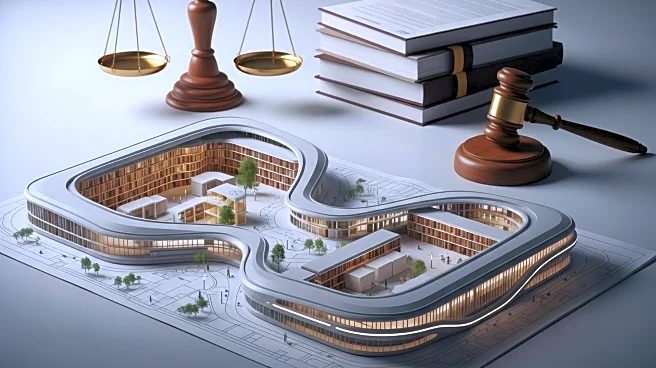What's Happening?
A Miami-Dade Circuit Judge, Mavel Ruiz, has temporarily blocked the transfer of land intended for President Trump's presidential library. The decision follows allegations from a Miami activist that Miami Dade College officials violated Florida's open
government law. The college had gifted a sizable plot of real estate to the state, which subsequently voted to transfer it to the foundation responsible for the library. The activist's claims have prompted legal scrutiny over the transparency and legality of the land transfer process.
Why It's Important?
The temporary block on the land transfer for President Trump's library highlights ongoing legal and ethical concerns surrounding government transparency and land allocation processes. This development could impact the timeline and planning of the presidential library, a significant project for President Trump's legacy. It also underscores the importance of adhering to open government laws, which are designed to ensure public access to governmental decision-making processes. The case may set a precedent for how similar transactions are handled in the future, potentially affecting other public land transfers and governmental projects.
What's Next?
The legal proceedings will continue as the court examines the allegations of open government law violations. Stakeholders, including Miami Dade College, the state, and the foundation for President Trump's library, may need to provide further documentation and justification for the land transfer. The outcome of this case could influence future decisions on public land use and governmental transparency. Additionally, public and political reactions may shape the discourse around the accountability of public institutions in land transactions.
Beyond the Headlines
This case raises broader questions about the balance between public interest and private projects, especially when involving high-profile figures like President Trump. It may lead to increased scrutiny of how public resources are allocated for private endeavors, potentially influencing policy reforms aimed at enhancing transparency and accountability in government dealings.
















